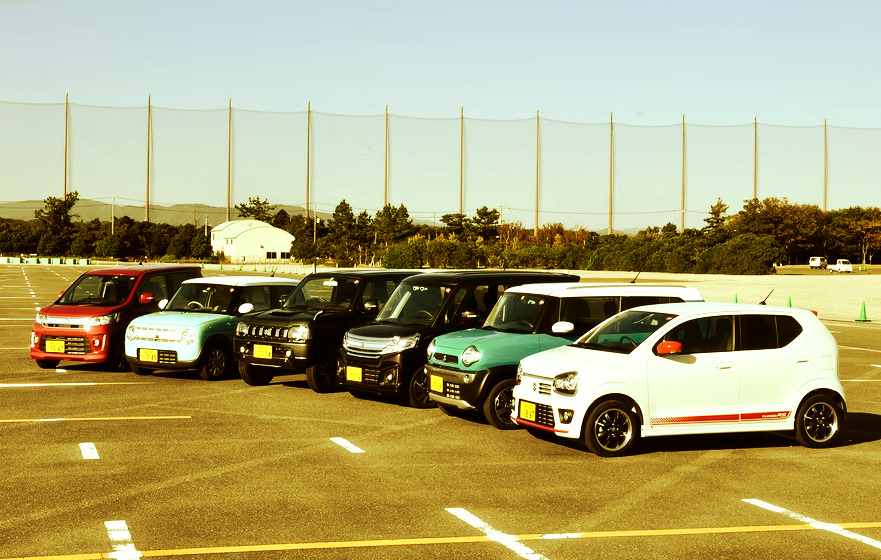Pakistan, a nation with a burgeoning population and increasing urbanization, is facing a multitude of challenges, including environmental degradation, rising fuel costs, and traffic congestion.
Related: Why is Pakistan Still a Sub-250K Vehicle Market?
In the face of these challenges, the urgent need to introduce small, fuel-efficient cars into the Pakistani automotive market has become paramount. This shift represents a critical step towards sustainable development, addressing environmental concerns, improving energy efficiency, and enhancing the overall quality of life for its citizens.
Environmental Concerns:
One of the most pressing reasons to introduce fuel-efficient cars in Pakistan is the alarming rate of environmental degradation. The country is grappling with severe air pollution, largely attributed to vehicular emissions. Small fuel-efficient cars with sophisticated engine technology produce significantly lower emissions compared to their larger counterparts, thus helping mitigate air pollution. By embracing cleaner technologies and promoting the use of eco-friendly vehicles, Pakistan can take a giant leap towards reducing its carbon footprint and combatting climate change.
Energy Efficiency and Economic Benefits:
Small fuel-efficient cars not only reduce environmental impact but also enhance energy efficiency. Pakistan, like many developing nations, faces energy scarcity and relies heavily on imported fuel. By introducing cars with superior fuel efficiency, the country can substantially decrease its reliance on imported fuel, conserving valuable foreign exchange reserves. Additionally, fuel-efficient vehicles save money for consumers in the long run, as they require less fuel to cover the same distance, making them economically viable for the average Pakistani household.
Traffic Congestion and Urban Mobility:
The introduction of small cars in Pakistan would alleviate the issue of traffic congestion, particularly in densely populated urban areas. These compact vehicles are easier to maneuver, requiring less parking space and easing traffic flow. Consequently, this would lead to reduced travel time, lower stress levels, and increased productivity for the workforce, enhancing overall urban mobility and making cities more livable.
Global Alignment and Climate Responsibility:
On a global scale, there is a growing emphasis on adopting sustainable practices to combat climate change. By introducing fuel-efficient cars, Pakistan can align itself with the global effort to reduce carbon emissions. This will not only enhance the country’s international standing but also demonstrate its commitment to fulfilling its climate responsibilities, contributing to a healthier planet for future generations.
Enhancing Market Volume
Despite being the fifth most populated nation, Pakistan has never been able to produce (assemble) more than 250,000 passenger vehicles annually despite embracing domestic assembly operations more than 35 years ago. One of the main causes of this, in addition to other concerns like ineffective capacity utilization, a nurtured black market culture, delayed deliveries, and the vicious practice of minting on-money/premium, is that the small vehicle market has been left to only one particular assembler. And because there aren’t enough smaller and fuel-efficient cars despite the huge demand, overall industry volumes are still low.

If more assemblers start offering compact & fuel-efficient models in the market, not only that the void be filled, but it will also eliminate the need for people to opt for imported used cars, and Pakistan will eventually be able to elevate its annual production volumes which is a key parameter to entice more players to explore business operations in the country that will eventually generate a healthy competition.
Related: How Stagnation Has Harmed Pakistan’s Industrial Capabilities
In conclusion, the introduction of small fuel-efficient cars in Pakistan is not merely a choice but a necessity dictated by environmental, economic, and societal factors. Embracing these vehicles will usher in a new era of sustainability, fostering cleaner air, reducing energy dependence, enhancing urban mobility, and fulfilling Pakistan’s global climate commitments besides enhancing the industry output in terms of numbers. It is imperative for policymakers and automakers to collaborate in making this transition, ensuring a greener, more prosperous future for Pakistan & its auto industry.

I don’t eat, sleep or dream of cars, I am just someone who loves to see, think & write about cars. I love Ferrari in Pink but they won’t make one for me. I use X to write my full name, but that doesn’t mean I’m inspired by Altis X, in fact, my dad hates it 😀 Btw I’m an occasional writer so don’t expect too much from me 🙂




